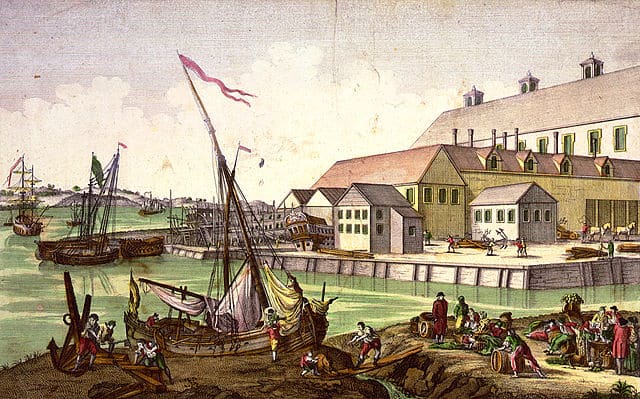William Bollan, a British-educated lawyer, spent much of his adult life serving as Massachusetts agent to London. He had arrived in Massachusetts in about 1740. He married the daughter of its governor and later became the colony’s advocate-general.
Bollan was often caught up in controversy as the relationship between Massachusetts and Britain deteriorated as the Revolutionary War approached.
Bollan supported Parliament but wanted changes
Whereas the colonies rejected parliamentary sovereignty, Bollan supported it. However, he hoped that Parliament would correct its errors and cease its direct taxation of the colonies. In his last pamphlet, “The Rights of the English Colonies,” Bollan eventually accepted the idea that Great Britain and the colonies would be joined by allegiance to the monarch, with each side being governed by its own legislature, and with each benefiting through mutual commerce.
Bollan wrote on freedoms of press and speech
Bollan’s most important work with respect to First Amendment freedoms is found in “The Freedom of Speech and Writing Upon Public Affairs Considered.” The work was published in 1766 and heavily laden with Latin phrases and long quotations from both ancient history and that of Britain. Beginning with an homage to truth and noting the connection between liberty of speech and press to other rights, Bollan observed that:
The free examination of public measures, with a proper representation by speech or writing of the sense resulting from that examination, is the right of the members of a free state, and requisite for the preservation of their other rights; and that all things published by persons for the sake of giving due information to their fellow subjects, in points mediately or immediately affecting the public welfare, are worthy of commendation” (p. 4; Old English f’s have been changed to s’s where appropriate).
Bollan identified restrictions on speech, press and religion with ancient tyranny, which in turn often relied upon torture. He also railed against prosecutions in Britain by the Star Chamber court. This led him to reject the idea of seditious libel (prosecutions for criticizing the government or its officials) and to accept the idea that truth should be a defense in libel cases.
He also trusted jurors, rather than judges, to be the decision-makers in such cases. He noted “to what great dangers and mischiefs the subjects are exposed when trials of their peers are subverted, and other modes of trial introduced.” And he concluded that “it is extremely desirable that trials by jury should ever be equal, fair and free, influenced by truth of fact and argument only” (p. 136).
Expressing concern for the libeling of private individuals (p. 138), Bollan reiterated that jurors were in the best position to punish such private libels.
Bollan died in Massachusetts in 1776.
John R. Vile is a professor of political science at Middle Tennessee State University. He also is dean of the university's Honors College.

